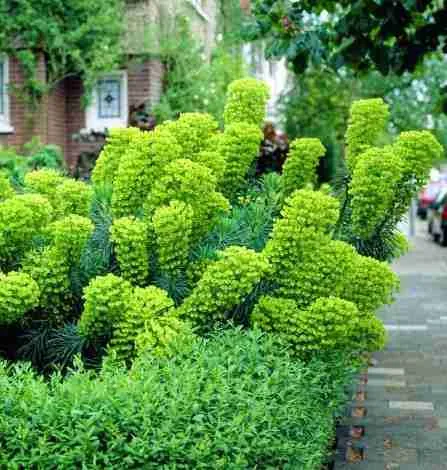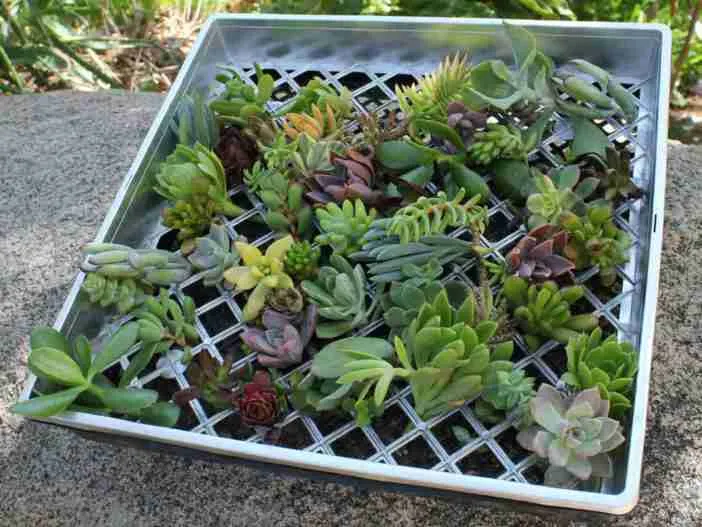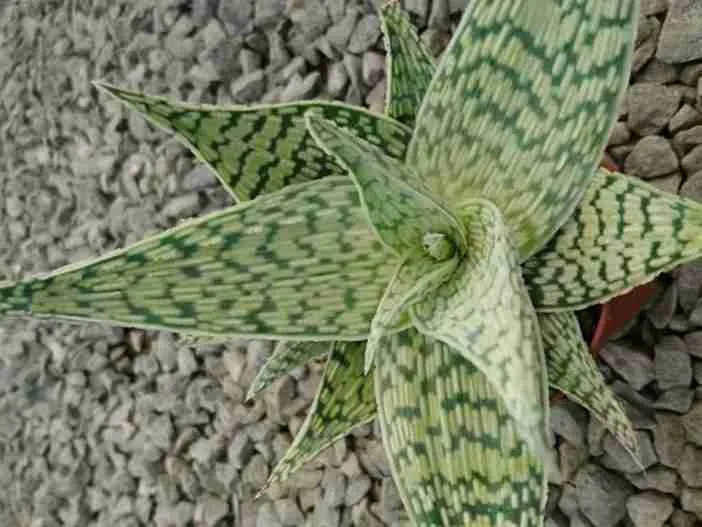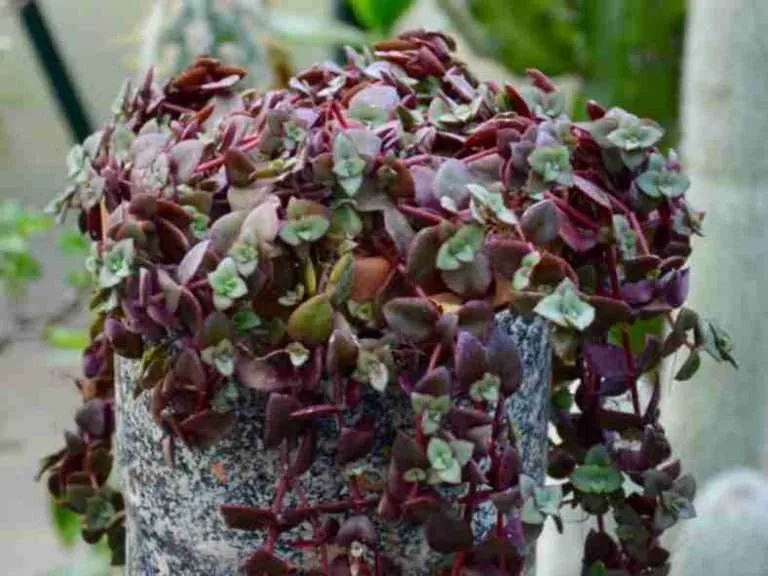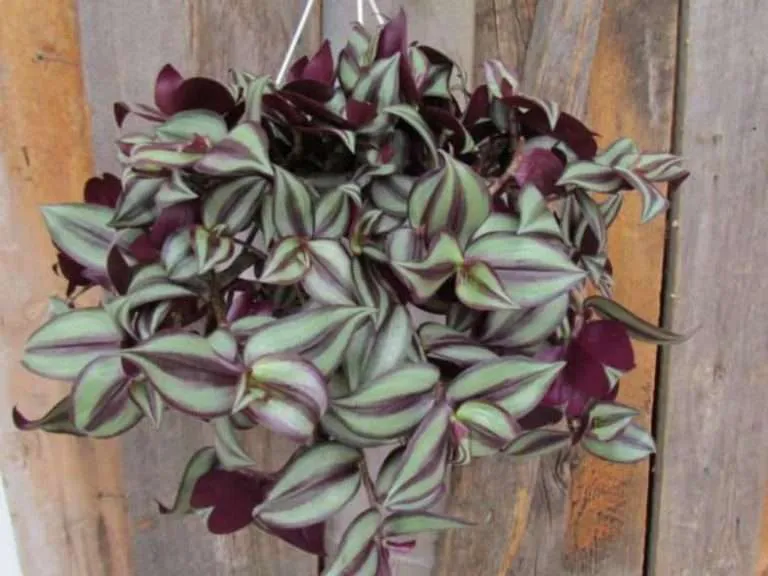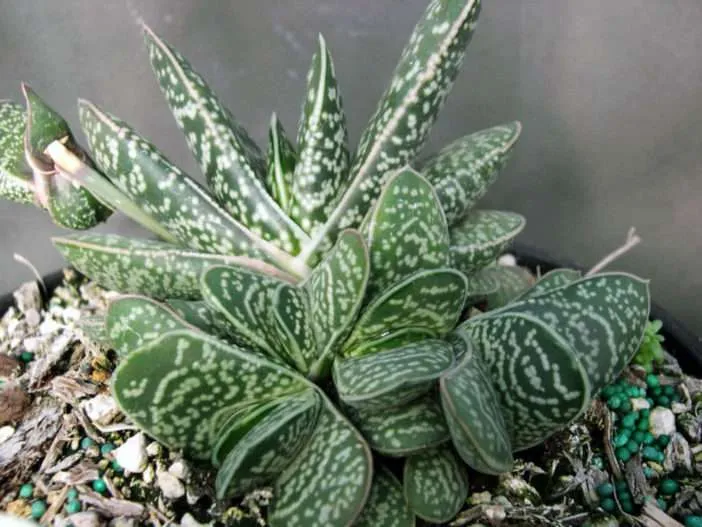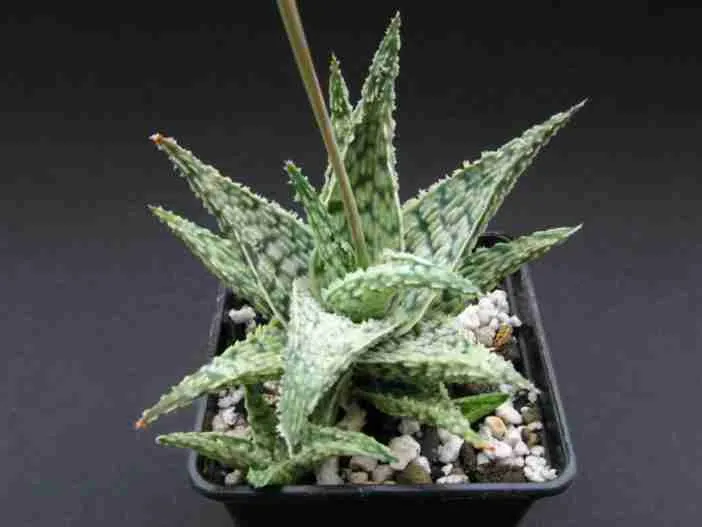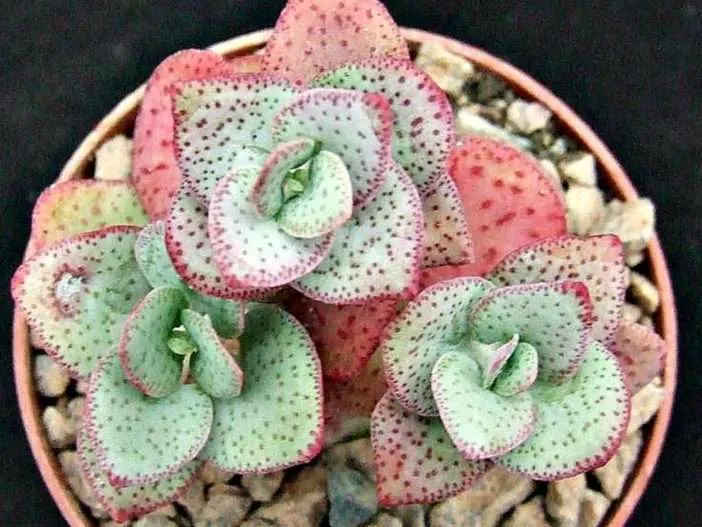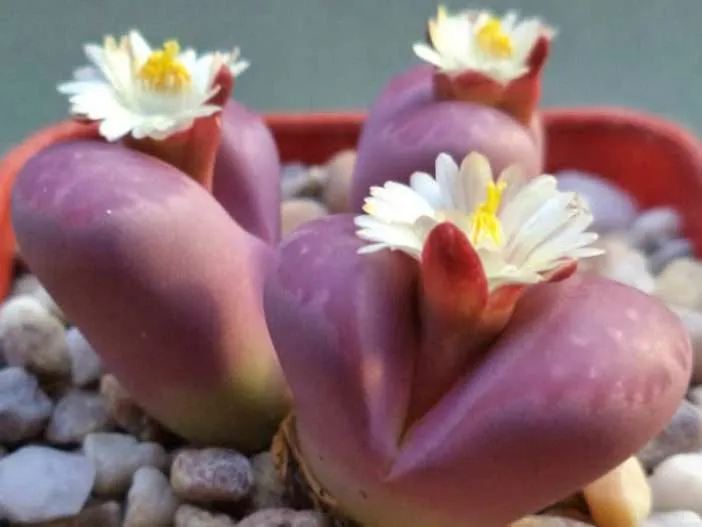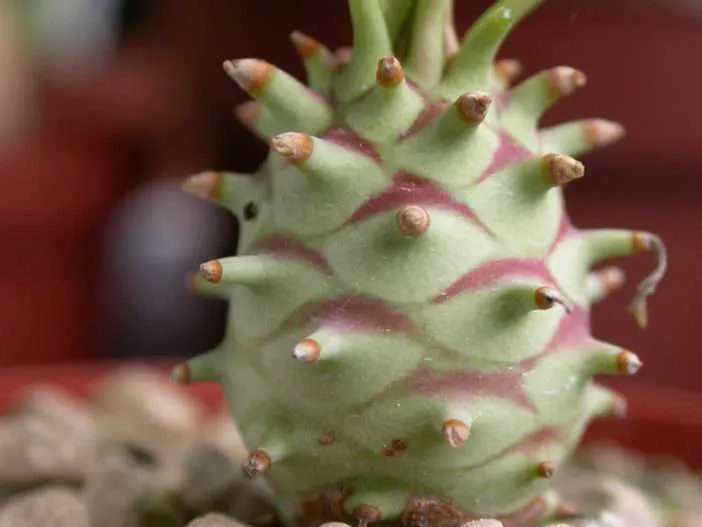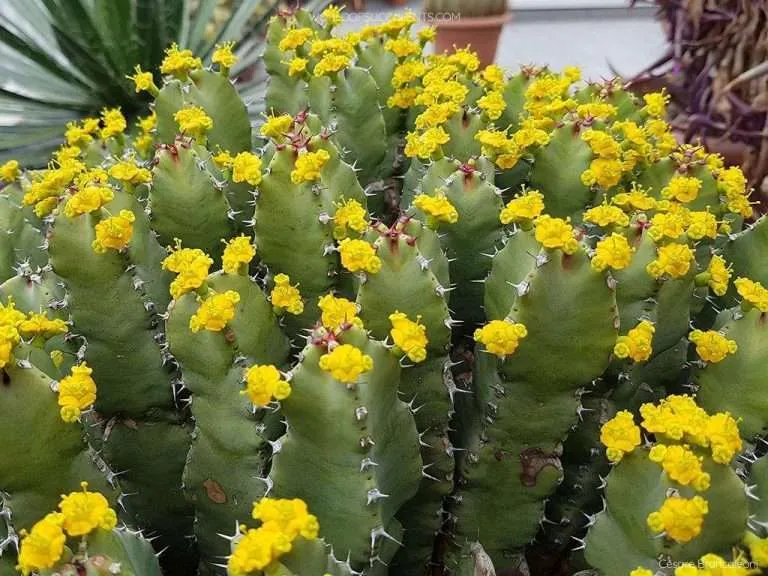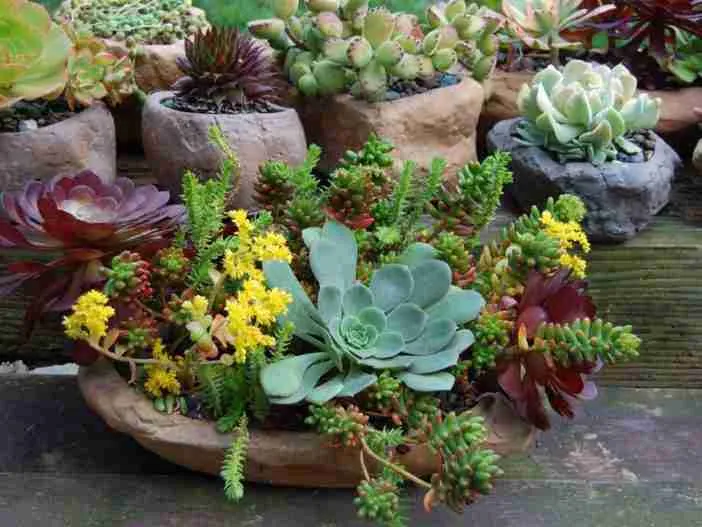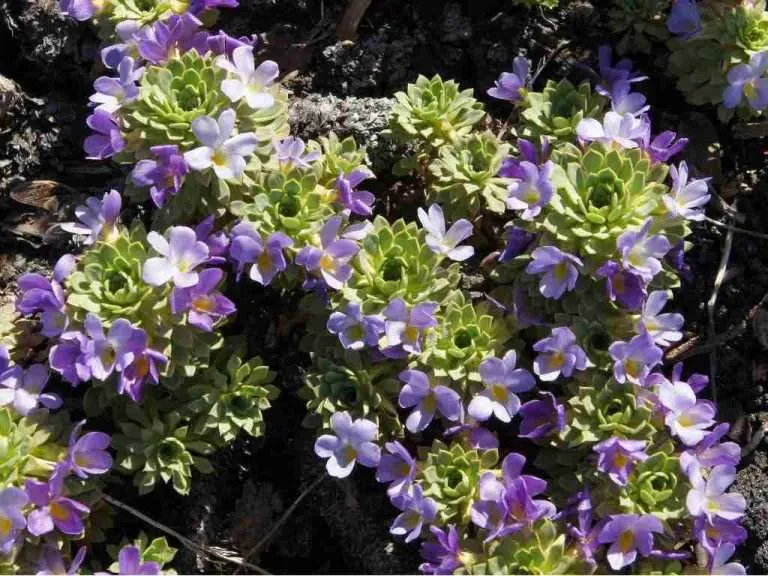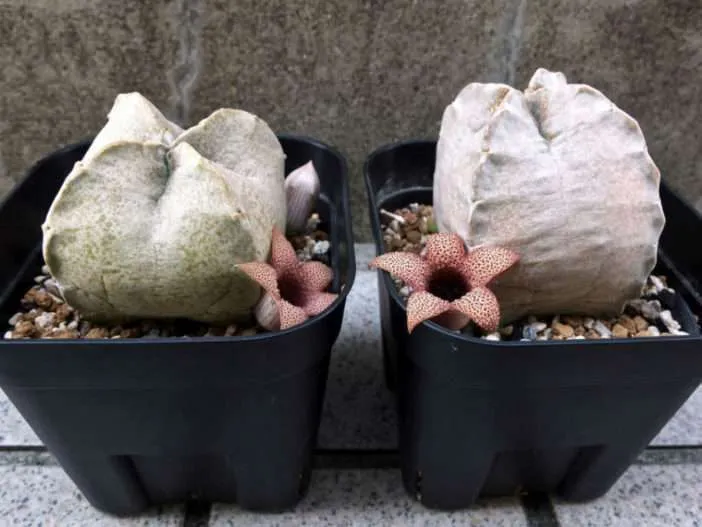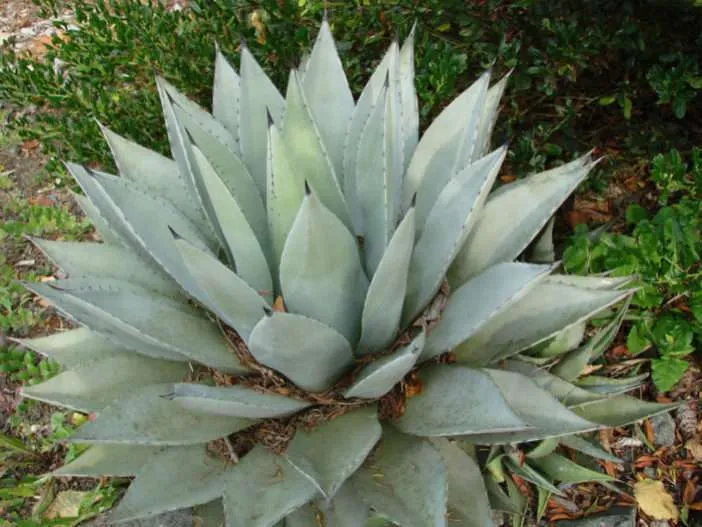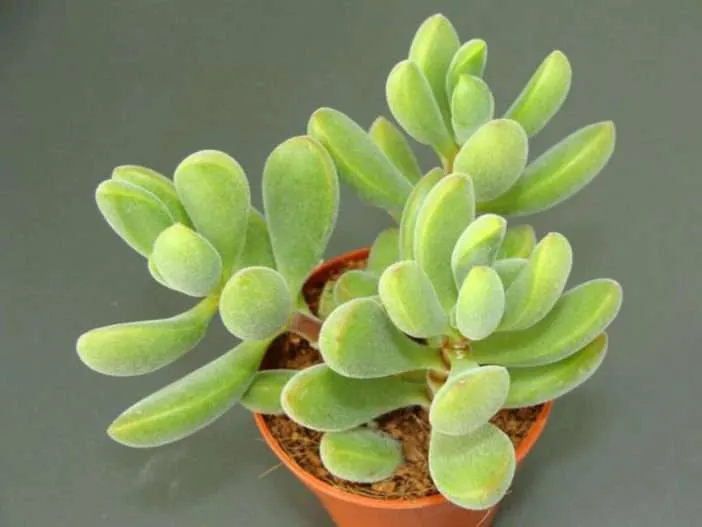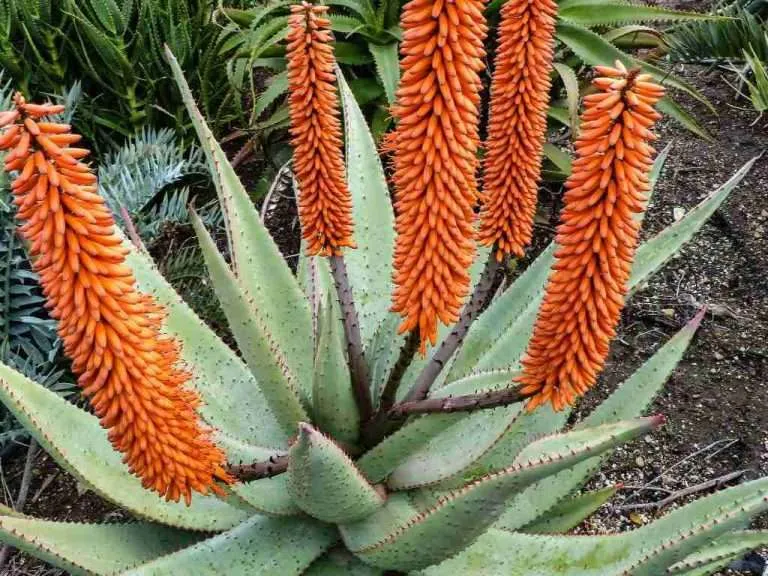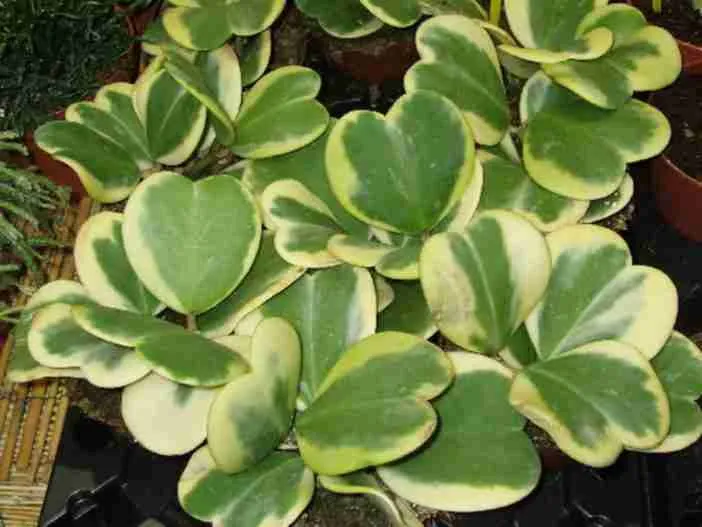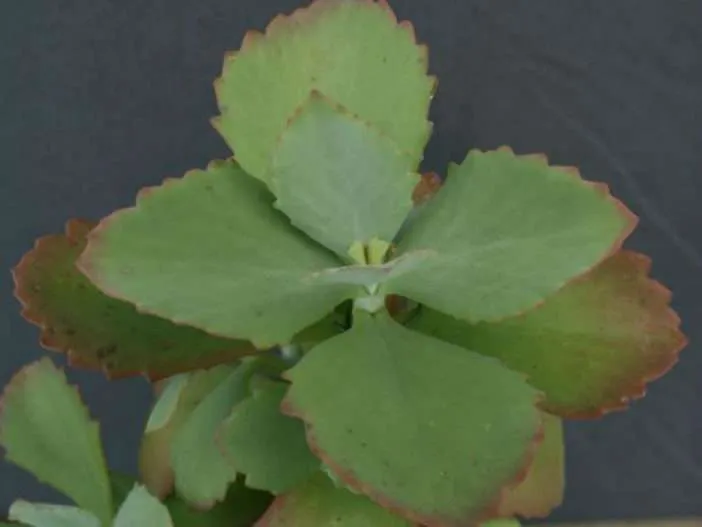Traducir al español y haga que sea mas fácil de entender. Mantenga la estructura. Mantenga etiquetas HTML
The cultivar formerly known as Agave guiengola ‘Marginata’ was renamed Agave guiengola ‘Creme Brulee’ by Tony Avent of Plant Delights Nursery, as the Latinized cultivar names are not valid.
Scientific Name
Agave guiengola ‘Creme Brulee’
Common Name(s)
Creme Brulee Century Plant
Synonym(s)
Agave ‘Creme Brulee’, Agave guiengola ‘Marginata’
Scientific Classification
Family: Asparagaceae
Subfamily: Agavoideae
Genus: Agave
Origin
This succulent is a variegated cultivar of Agave guiengola selected by world-renowned Agave specialist Kelly Griffin.
Description
Agave guiengola ‘Creme Brulee’ is an elegant succulent that forms open rosettes of grey-green glaucous leaves with wide, creamy white to cream-yellow margins. The rosettes can grow up to 3 feet (90 cm) tall and 4 feet (1.2 m) in diameter and produce many offsets, forming a large clump with age. The broad leaves have dark-colored teeth along the margins and a brown terminal spine.
Once mature, the rosettes of this plant produce a tall spike with pale yellow flowers that can reach a height of up to 6 feet (1.8 m). After flowering, the rosette dies.

How to Grow and Care for Agave guiengola ‘Creme Brulee’
Light: For optimal growth, Agave guiengola ‘Creme Brulee’ requires full sun to partial shade. If you are growing it indoors, choose a sunny window with as much sunlight as possible. From spring to fall, it enjoys being outside.
Soil: This plant can tolerate most soil as long as it has good drainage, but it thrives in sandy or rocky soil but
Temperature: This plant prefers warm temperatures during the growing season and cooler temperatures while resting in winter. It grows best in USDA Plant Hardiness Zones 9a to 11b, with average minimum winter temperatures ranging from 20 to 50 °F (-6.7 to 10 °C).
Watering: To keep your Agave guiengola ‘Creme Brulee’ healthy, water it thoroughly when the soil becomes dry from spring to fall. In winter, water it sparingly, about once a month. If you have the plant in a container, it will require more frequent watering than plants in the ground.
Fertilizing: During the first two years, give the plant a small amount of fertilizer in the spring. After that, the established plant will take care of itself.
Repotting: If you notice your Agave guiengola ‘Creme Brulee’ becoming pot-bound, repot it with fresh soil in a new pot slightly larger than the old one. Give the plant a week or so to readjust before you water it again.
Propagation: Since it has a solitary growth habit, this plant can only be propagated by seeds.
Learn more at How to Grow and Care for Agave.
Toxicity of Agave guiengola ‘Creme Brulee’
Agave guiengola ‘Creme Brulee’ is not toxic to humans but may be mildly poisonous to children and pets.
Links
- Back to genus Agave
- Succupedia: Browse succulents by Scientific Name, Common Name, Genus, Family, USDA Hardiness Zone, Origin, or cacti by Genus
Photo Gallery
Click on a photo to see a larger version.




